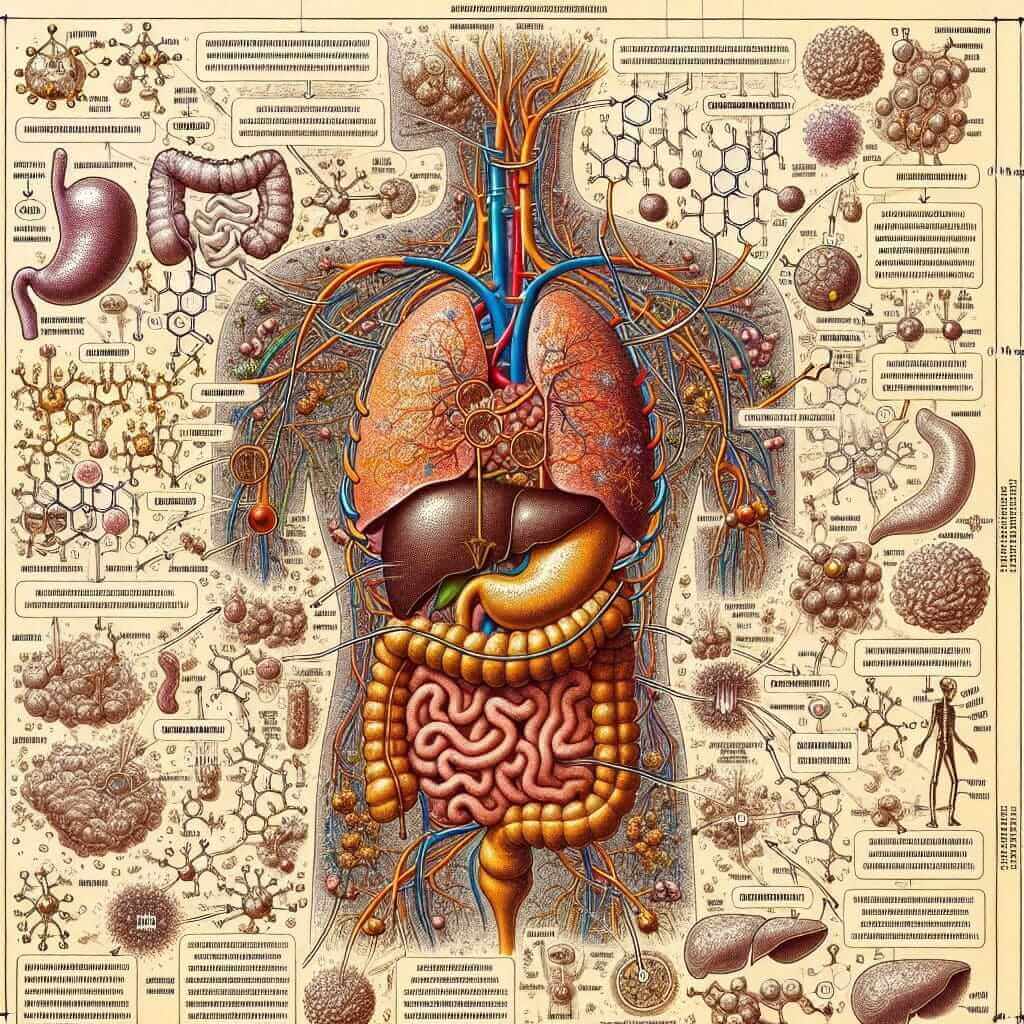“Metabolism” (/məˈtæbəˌlɪzəm/) is a crucial term in the realm of health and often appears in IELTS Listening, Reading, and even Speaking sections. It refers to the chemical processes within a living organism that maintain life. Mastering this term, along with its synonyms and related vocabulary, can significantly enhance your understanding and performance in the IELTS exam.
Here are some synonyms for “metabolism”:
- Metabolic rate: (/ˌmɛtəˈbɒlɪk reɪt/) – The speed at which your body burns calories.
- Metabolic process: (/ˌmɛtəˈbɒlɪk ˈproʊsɛs/) – A series of chemical reactions in the body.
- Metabolic system: (/ˌmɛtəˈbɒlɪk ˈsɪstəm/) – The system in the body that manages metabolic processes.
- Metabolic disorder: (/ˌmɛtəˈbɒlɪk dɪsˈɔːrdər/) – A health condition affecting metabolism.
- Metabolic health: (/ˌmɛtəˈbɒlɪk hɛlθ/) – The state of your metabolism and its efficiency.
Delving Deeper into “Metabolism”
What is Metabolism?
Metabolism encompasses all the chemical reactions that occur within an organism to sustain life. These processes include converting food into energy, eliminating waste products, and building and repairing tissues.
Why is it important for IELTS?
Understanding “metabolism” is essential for comprehending texts and discussions related to:
- Nutrition: Texts discussing dietary recommendations, calorie intake, and weight management often utilize this term.
- Exercise: The impact of physical activity on metabolic rate is a common topic in health-related passages.
- Disease: Understanding metabolic disorders like diabetes requires familiarity with this concept.

“Metabolism” in the IELTS Exam
Listening Section
You might encounter “metabolism” in lectures or conversations about health and nutrition. For instance:
“The speaker explained that regular exercise can boost your metabolism, leading to more efficient calorie burning.”
Reading Section
Texts discussing health, biology, or even lifestyle trends might use this term. For example:
“The article explored the link between sleep deprivation and a slower metabolism, potentially leading to weight gain.”
Speaking Section
You can utilize “metabolism” when discussing your health, fitness routine, or dietary habits:
“I’ve been trying to improve my metabolism through a combination of exercise and a balanced diet.”
Expanding Your Vocabulary
Here are some additional words and phrases related to “metabolism”:
- Calorie: A unit of energy derived from food.
- Nutrients: Substances in food that provide nourishment.
- Digestion: The process of breaking down food.
- Enzyme: A protein that speeds up chemical reactions.
- Hormones: Chemical messengers that regulate bodily functions, including metabolism.
Idioms and Collocations
While there aren’t direct idioms using “metabolism,” you can use it effectively in collocations:
- Boost/Increase metabolism: “Regular exercise can boost your metabolism.”
- Slow/Reduce metabolism: “Age can slow down your metabolism.”
- Fast/High metabolism: “Some people naturally have a fast metabolism.”
Conclusion
Mastering “metabolism” and its related vocabulary is crucial for excelling in the IELTS exam, particularly in health and lifestyle-related topics. By understanding its various applications and incorporating it into your speaking and writing, you can demonstrate a broader vocabulary and a deeper understanding of the subject matter. Remember to practice using these terms in context to enhance your fluency and confidence.